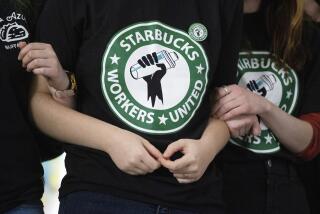Union Demands Parity With GM, Ford Workers : Chrysler Canada Unit Opens Talks
- Share via
TORONTO — Canadian auto workers, negotiating their first major contract since deciding to split from the Detroit-based United Auto Workers, told Chrysler’s Canadian subsidiary Tuesday that they would insist on pay raises to match higher wages at General Motors and Ford.
Robert White, UAW director for Canada, told reporters after a brief opening session that his top goal would be “to restore Chrysler Canada workers to full and complete parity with Ford and GM workers.”
The Canadian auto workers, traditionally more militant than their U.S. counterparts, went on strike at GM last October and in 1982 at Chrysler--both times against the wishes of U.S. union leaders, forcing layoffs in auto plants south of the border. The union split, agreed to last December, resulted from tensions that emerged during the two strikes.
White said he was optimistic about avoiding a strike this year.
“I see no reason for a confrontation at Chrysler,” he said. “There is no rational argument today as to why Chrysler can’t meet the Canadian pattern.”
The head of the Chrysler negotiating team, William J. Fisher, said the company hasn’t decided whether to accept the pattern negotiated by the Canadian subsidiaries of Ford and Chrysler, which gave Canadian workers higher hourly increases but did not include lump-sum payments or profit sharing won by U.S. workers at the two companies.
“Our top priority is to make the plants more competitive to increase job security for our employees,” Fisher told a news conference.
For the next few weeks, the only bargaining will be conducted by committees dealing with local issues. The next main-table session is scheduled Sept. 9, just two days after the founding convention of the new independent Canadian UAW is scheduled to conclude.
White said there would be some “liaison” between the two union branches, soon to be separate unions, but no question of taking direction from the U.S. leadership.
Fisher, who also headed the Chrysler Canada bargaining team in 1982 when the Canadian workers went on strike for 38 days, said he did not expect the union split to have much effect on the talks.
“I don’t think it’s going to be that different,” he said. “The players are the same and the game’s the same.”






